“The world is changing. Soon there will only be the conquered and the conquerors. You are a good man, with a good heart. And it’s hard for a good man to be king.” The Black Panther
It takes more than stunning CGI effects, a photogenic cast, and the backdrop of a beloved comic book template to become a great film. Those factors alone will generate ticket sales, but to transcend the realm of ‘entertainment’ and move the masses takes vision, courage, and the ability to help the viewer realize, or reimagine, the status quo. That’s what I experienced last weekend when our family joined a packed theater of moviegoers and witnessed Marvel Comic’s latest live-action film, The Black Panther.
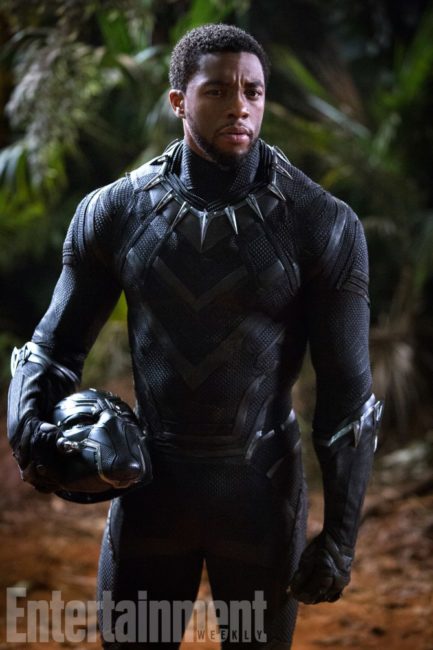 No spoilers ahead, Black Panther finds its main character, T’Challa, (Chadwick Boseman), picking up where Marvel’s 2016’s Captain America: Civil War film left off, grieving the loss of his father, King T’Chaka, and grappling with his duties as the new ruler of the fictitious African nation of Wakanda: will he honor tradition by remaining off the grid to maintain the people and resources, or will he become part of the world collective and aid others in the process? T’Challa isn’t given long to decide, since an enemy born on American soil, Erik “Killmonger” Stevens (Michael B. Jordan), exposes a painful secret that threatens Wakanda’s way of life and T’Challa’s existence as a man and monarch.
No spoilers ahead, Black Panther finds its main character, T’Challa, (Chadwick Boseman), picking up where Marvel’s 2016’s Captain America: Civil War film left off, grieving the loss of his father, King T’Chaka, and grappling with his duties as the new ruler of the fictitious African nation of Wakanda: will he honor tradition by remaining off the grid to maintain the people and resources, or will he become part of the world collective and aid others in the process? T’Challa isn’t given long to decide, since an enemy born on American soil, Erik “Killmonger” Stevens (Michael B. Jordan), exposes a painful secret that threatens Wakanda’s way of life and T’Challa’s existence as a man and monarch.
Was there an abundance of slick stunts, eye-catching images and elements of the supernatural? Of course. But what’s reverberated most powerfully with moviegoers, especially among African-Americans, is what Wakanda represents: unapologetic Blackness.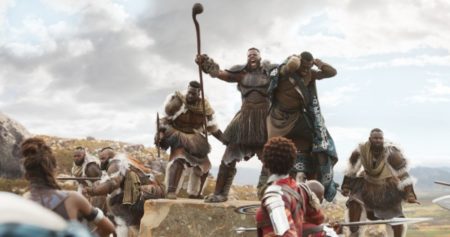
Thanks to the skills and execution of Ryan Coogler, Panther’s African-American director and screenplay co-writer, Wakanda exemplifies what could have been if African nations escaped colonialism and slavery. For a few moments in time, Black Panther reminds us of the rich traditions we were snatched away from and the possibilities yet to be realized. In America, all black people have known about themselves is filtered through a Eurocentric perspective, the constant disapproving ‘white gaze’ that interpreted our melanin, our physicality, and our complexities for hundreds of years as inferior. If our ancestors had been left in the motherland instead of forced to provide free labor, where would America be? Would Wakanda be a reality today?
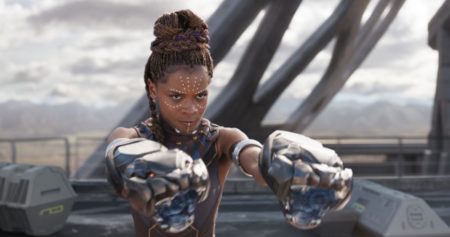 It’s hard to describe the wonder I felt while watching the kids absorb what played out across the big screen—-Layla was transfixed by T’Challa’s kid sister, Shuri (Letitia Wright), and her tech prowess. Nia was impressed with the women warriors known as the Dora Milajae, and how “they helped the men fight and didn’t just watch them do it.” Darius’ pride came from watching the kings navigate and Calvin, liked me, enjoyed it all: “Watching Black Panther just felt like ‘going home.’
It’s hard to describe the wonder I felt while watching the kids absorb what played out across the big screen—-Layla was transfixed by T’Challa’s kid sister, Shuri (Letitia Wright), and her tech prowess. Nia was impressed with the women warriors known as the Dora Milajae, and how “they helped the men fight and didn’t just watch them do it.” Darius’ pride came from watching the kings navigate and Calvin, liked me, enjoyed it all: “Watching Black Panther just felt like ‘going home.’ 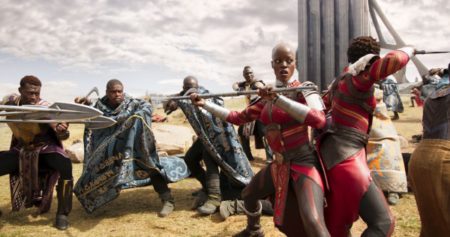
Fictional or not, the effect that watching black characters filmed so beautifully and within fully-nuanced roles cannot be understated. The features that the Eurocentric society ostracizes—darker skin, fuller lips, varieties of textured hair and even ritualized scarification— are given unabashed admiration in Panther. If nothing else, Panther, for many, is the first big-budget major-motion picture that conceptualizes Africans and African-Americans through a “lived-in” point of view: when supervillain thief Ulysses Klaue (Andy Serkis) mocks King T’Challa by calling him ‘savage,’ for example, or when the American-born Killmonger characterizes Wakanda natives as ‘comfortable’ with palpable disgust, the moments are framed with authenticity that only another similarly-situated mindset could deliver.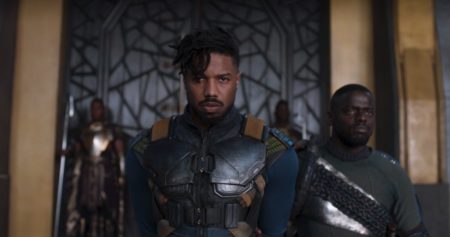
Universal themes aside—family secrets, fatherlessness and social responsibility—the success of Black Panther demonstrates a long-denied yearning for positive minority representation in films and stories told from perspectives from cultures other than what’s considered mainstream. If this film can help change how people perceive blackness and, in turn, how blacks perceive themselves or how Africans perceive their American-born descendants, its worth—hefty box office numbers aside—is already priceless.

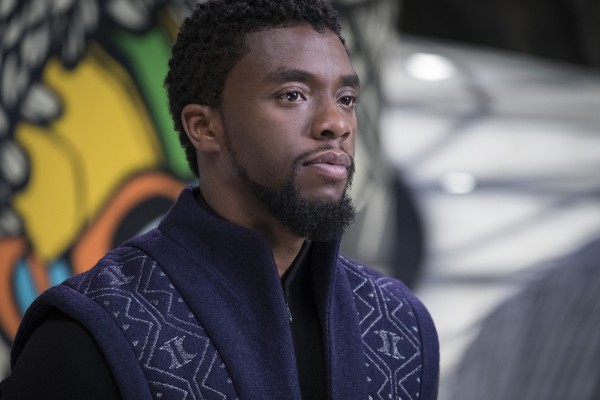
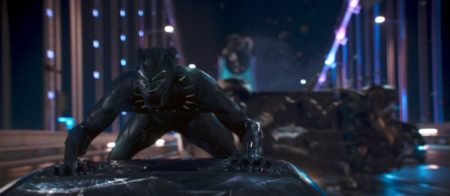
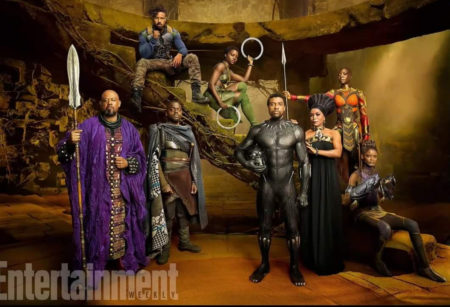
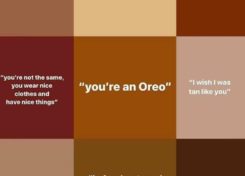
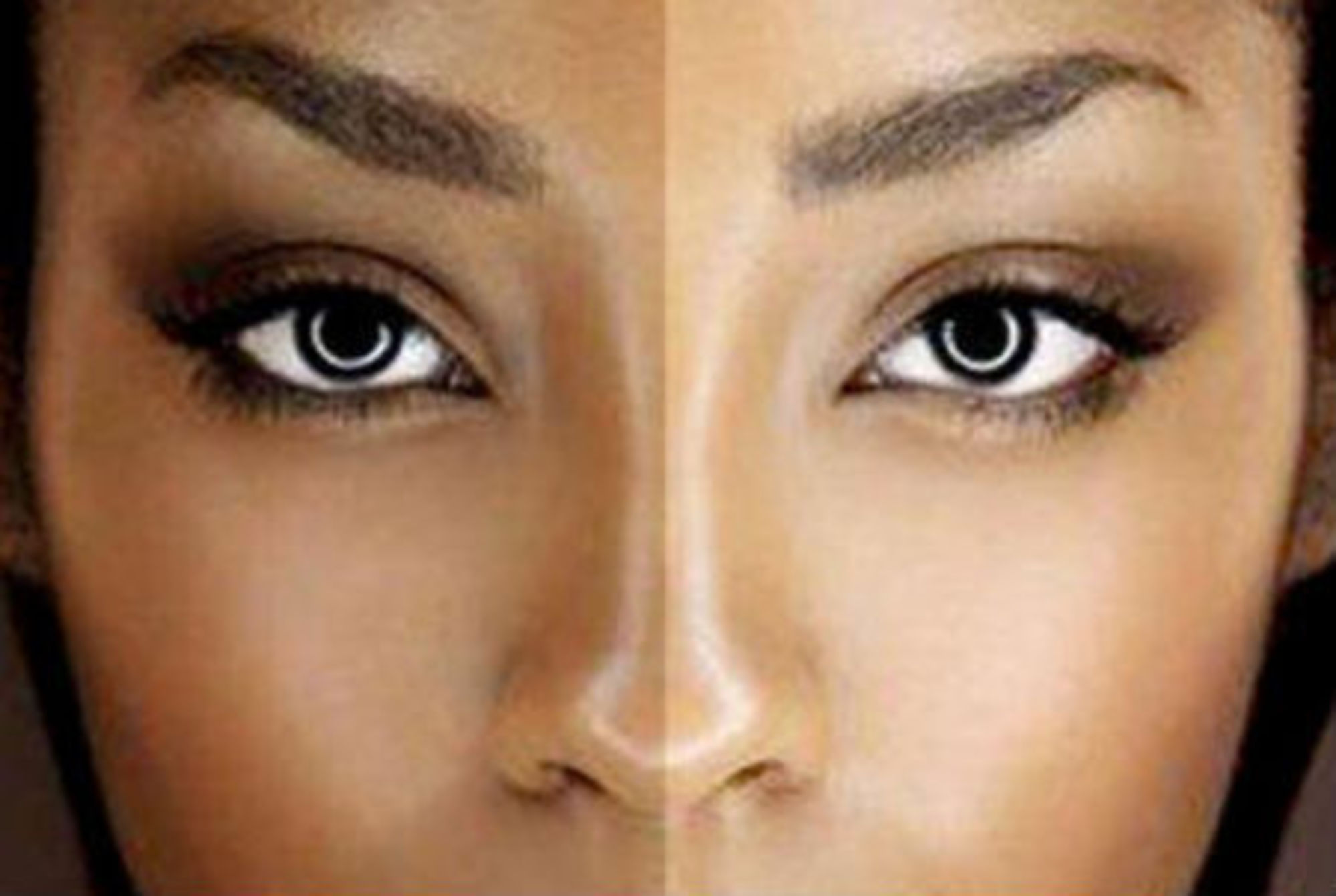
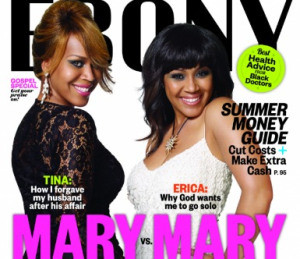
1 Comment
Tchalla is a black hero and is a great savior and will always be our black majestic hero…..
July 10, 2019 at 5:45 pm